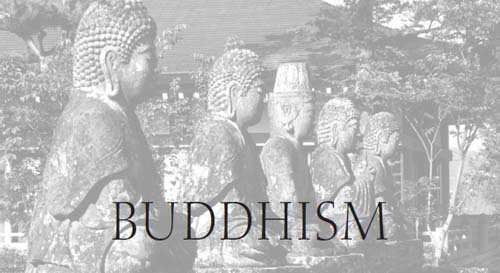BuddhismHistory and Sources |
When and where did Buddhism begin? |
Buddhism began in a region of northeast India, part of which is present-day Nepal. During the mid-sixth century B.C.E. the kingdom of Koshala ruled the area from its capital city of Shravasti (also known as Kapilavastu). One of the realm’s leading factions was the Shakya clan, traditionally identified as belonging to the Kshatriya or warrior caste. India at that time was politically fragmented into well over a dozen major regional powers. The vast majority of the population practiced forms of Hindu tradition under the leadership of a strong Brahmin priesthood. Ritual and belief centered largely on this-worldly concerns, such as managing weather to insure good harvest and curing illness. But some who had inherited the ancient tradition were beginning to question its efficacy. The famed holy city of Benares was part of the Koshala realm. There and elsewhere in the kingdom individuals and small groups of religious seekers raised issues about possible life after death, including the notion of rebirth into other modes of existence. Within the Hindu tradition the new questioning gave rise to the scriptures called the Upanishads, with their deep reflection on the nature of the self and of greater spiritual realities. Some of these new seekers parted company with mainstream Hindu tradition altogether and eventually developed into whole new communities of belief and practice. One such community is now called the Jain tradition, named after the jinas or “spiritual conquerors” to whom tradition attributes its founding spirit.
The demanding ascetic discipline taught by Jainism’s tirthankaras (“those who find crossing places in the river”) formed one of the religious options available as early Buddhism developed. Buddhism itself would join Jainism as one of a number of splinter groups that, from a Hindu perspective, were unacceptable. These “heretics” got the name nastika, “those who deny” the fundamentals of Hindu belief as it was evolving then. What we now call Buddhism thus grew out of an age of political and spiritual ferment, offering seekers one of a number of significant religious options.

